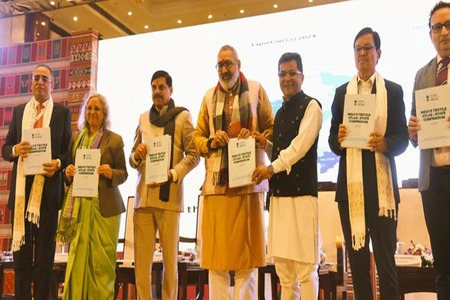Dilution of ten percent in jute packaging order for foodgrains
YarnsandFibers News Bureau 2017-01-14 16:00:00 – New DelhiThe Union textiles ministry has allowed a dilution of 10 percent in the mandatory jute packaging order for food grains amid a projected shortfall of more than 0.17 million bales (one bale is 180 kg) of B-Twill jute bags during the Rabi marketing season (RMS) for 2016-17 . The dilution order will be valid till March 31, 2017.
The textiles ministry in an office order said that the department of food & public distribution is now empowered to take the call on use of plastic bags to meet the packaging requirement.
A decision on further relaxation of the jute order for foodgrains is expected to be taken later this month. The Jute Packaging Materials Act, 1987 mandates compulsory packaging of food grains of 100 per cent in jute bags.
There is a shortage in supply of jute bags and this may have promoted the Textiles ministry to permit 10 percent dilution in food grains packaging. According to a leading jute mill owner, the present crunch has hit supplies of raw jute to the mills.
The dilution move has triggered concerns in the jute industry hit hard by the demonetisation drive, putting to stake the future of 0.25 million jute workers in West Bengal
An inspection by the office of the Jute Commissioner shows woeful figures in the supply of jute bags in the states of Odisha, Telengana, Andhra Pradesh, Punjab, Chhattisgarh, Bihar and Haryana. Average despatched quantity of jute bags to these states (as on January 1, 2017) is only 18 per cent.
The Jute Commissioner's office on the premise of dwindling supplies recommended a dilution of 10 per cent in food grains in favour of alternative packaging material.
Market Intelligence
Ask for free sample Report

experience
Customer Base
dedicated team
Countries Served Worldwide









